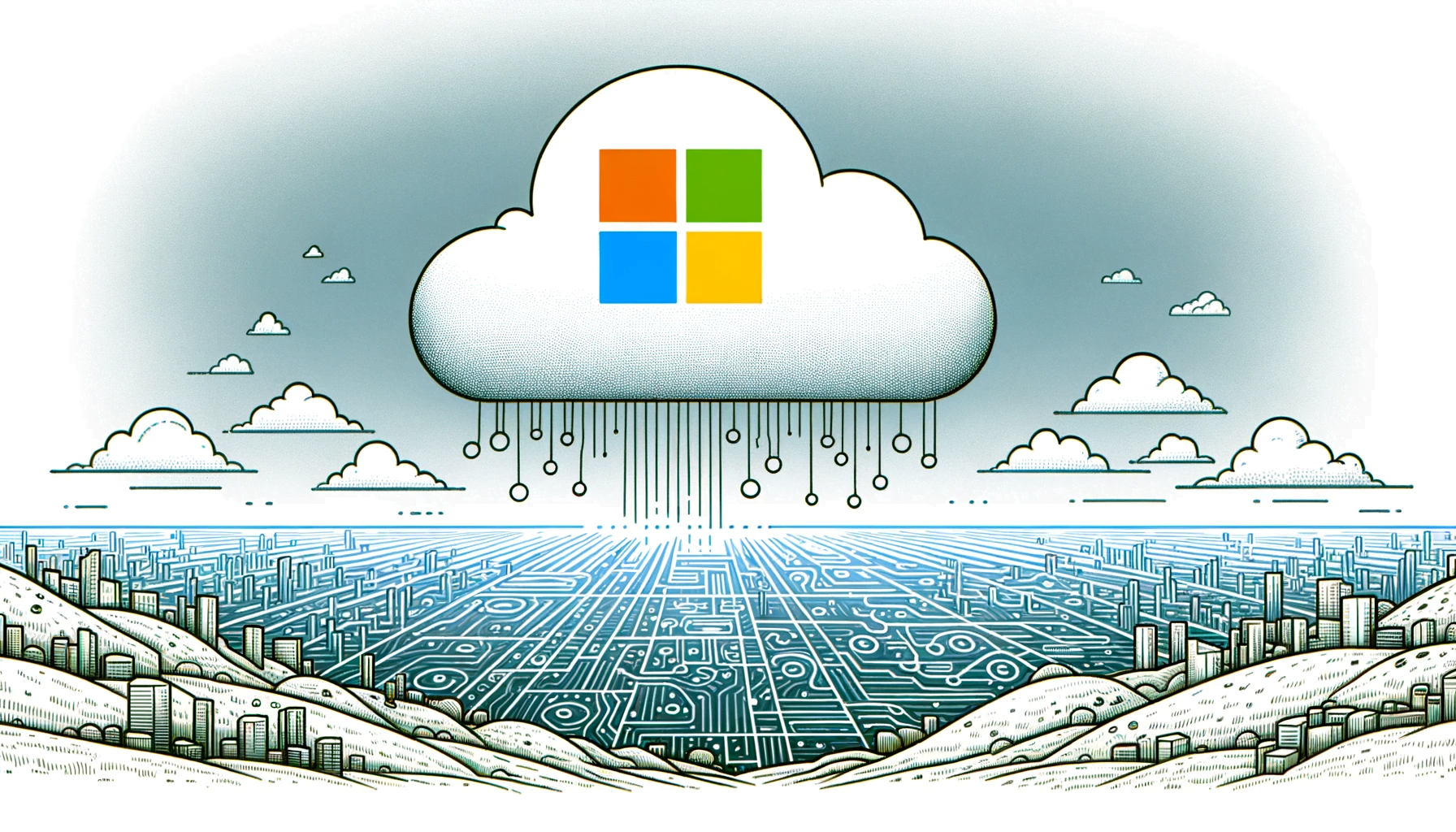Microsoft reported excellent quarterly results. Cloud growth in particular is accelerating again.
Microsoft's third-quarter revenue grew 13 percent year over year to $56.5 billion. Profit was up 27 percent to $22.3 billion. These figures exceeded both analyst expectations and Microsoft's own estimates.
AI-driven Azure cloud growth is Microsoft's flagship number
In particular, Microsoft's Azure cloud was a positive surprise. It grew 29 percent, up from 26 percent in the previous quarter.
According to Microsoft, about two percentage points of Azure's growth came from generative AI products, including access to OpenAI's GPT-4 language model, which Microsoft offers exclusively to customers in addition to OpenAI itself. In Europe, Microsoft Azure is the only way to use OpenAI models in a privacy-compliant way. In addition, Microsoft provides access to open-source models such as Meta's Llama and models from Hugging Face.
Thanks to this "overall differentiation," more than 18,000 companies are using Azure OpenAI services, including many new Azure customers, Microsoft CEO Satya Nadella said during the company's quarterly earnings call.
Likewise, Microsoft is expanding its reach among digital-first companies, he said, as "leading AI startups use OpenAI to power their AI solutions" and moving to the Azure cloud as a result. Microsoft continues to see more cloud migrations, Nadella said.
Microsoft Cloud floats ahead of Google
Microsoft's cloud performance is particularly noteworthy when compared to Alphabet: The Google parent grew its cloud by just 22.5 percent, down from 32 percent a year ago and 28 percent in the previous quarter. This is the slowest growth since the service launched.
Google is still the smallest cloud provider in the market and therefore has the most growth potential. Of course, the overall economy could have an impact on Google's cloud growth.
But this factor carries little weight when Microsoft can grow with the same product in the same market with the same customers. The comparison with Amazon's cloud division AWS will be interesting.
In any case, with its claim to be the world's leading AI company, Google should be keen not to lose ground to Microsoft in the AI-driven cloud business, the next growth horizon for big tech. Google's multimodal Gemini model announced for the end of the year, which will be available exclusively in the Google Cloud, could bring new momentum to the market.






